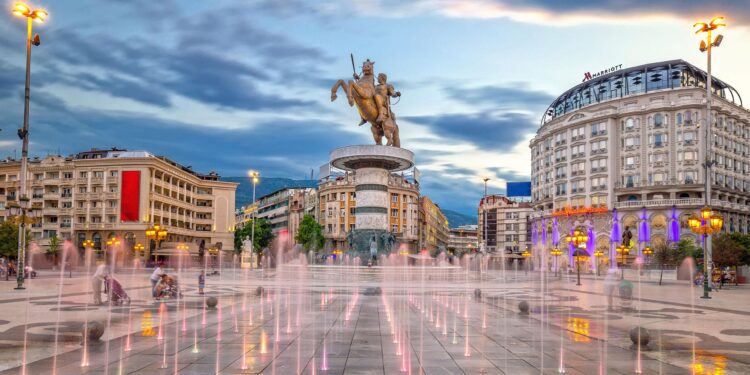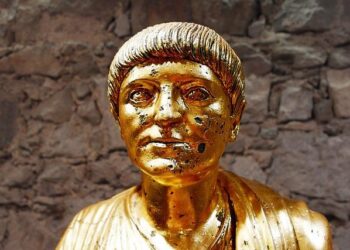North Macedonia’s journey to independence stands as a pivotal chapter in the Balkan Peninsula’s complex history. Emerging from the shadows of the former Yugoslavia, this nation officially declared its sovereignty in the early 1990s, setting in motion a series of political, social, and diplomatic developments that continue to shape its identity today. This article delves into the key events and challenges surrounding North Macedonia’s quest for independence, drawing on insights from Britannica to provide a comprehensive overview of one of Southeast Europe’s most significant modern transformations.
North Macedonia’s Path to Independence A Historical Overview
The emergence of North Macedonia as an independent state is a narrative shaped by centuries of complex political and ethnic shifts in the Balkan Peninsula. Following the dissolution of the Ottoman Empire and later the breakup of Yugoslavia, the region navigated a challenging transition. The 1991 referendum marked a pivotal moment, with a significant majority voting for sovereignty amidst concerns over ethnic identity and international recognition. This move was met with both internal jubilation and external diplomatic hurdles, especially regarding the country’s name and relations with neighboring Greece.
Key milestones in North Macedonia’s journey to independence include:
- 1991 Referendum: Over 95% voted in favor of independence.
- UN Membership: Entered the United Nations in 1993 under the provisional reference “The Former Yugoslav Republic of Macedonia.”
- Prespa Agreement: Signed in 2018, resolving the long-standing naming dispute with Greece.
| Year | Event | Significance |
|---|---|---|
| 1991 | Independence Referendum | Majority approval for sovereignty |
| 1993 | UN Membership | International recognition |
| 2018 | Prespa Agreement | Resolved Greece naming dispute |
Challenges and Achievements in Nation Building Since 1991
Since declaring independence in 1991, North Macedonia has navigated a complex landscape marked by social, political, and economic challenges. The country faced initial obstacles such as international recognition disputes, ethnic tensions, and economic instability following the dissolution of Yugoslavia. Efforts to foster national unity were paramount, with the government implementing reforms aimed at protecting minority rights and stimulating growth. Despite these hurdles, North Macedonia’s commitment to democratic values and regional cooperation laid the foundation for significant progress in state-building.
Key milestones achieved in this period include:
- The signing of the Ohrid Framework Agreement in 2001, which helped ease ethnic conflict and promote power-sharing.
- Reforming the constitution and institutions to align with European Union standards.
- Successful NATO membership attained in 2020, strengthening security alliances.
- Resolving the long-standing name dispute with Greece through the Prespa Agreement in 2018, a major diplomatic victory.
| Year | Challenge | Achievement |
|---|---|---|
| 1992 | International non-recognition | UN membership |
| 2001 | Ethnic conflict | Ohrid Framework Agreement |
| 2018 | Name dispute with Greece | Prespa Agreement signed |
| 2020 | Security concerns | Joined NATO |
Strategic Recommendations for Sustaining Political Stability and Economic Growth
Bolstering democratic institutions remains paramount to reinforcing North Macedonia’s political resilience. Prioritizing transparent governance and enhancing judicial independence will curtail corruption and build public trust. Encouraging inclusive dialogue among ethnic communities can foster social cohesion, reducing tensions that have historically challenged the nation’s unity. Moreover, investing in civic education will equip citizens with the knowledge to engage actively and responsibly in democratic processes, ensuring long-term stability.
On the economic front, diversification and innovation are critical drivers for sustainable growth. North Macedonia should leverage its strategic geographic position to attract foreign direct investment by streamlining regulatory frameworks and supporting entrepreneurship. Key sectors such as technology, green energy, and manufacturing hold promise for job creation and export expansion. Additionally, a commitment to workforce development through vocational training and education will align skills with market demands, fostering competitiveness in the regional economy.
- Reform public administration to enhance efficiency and accountability
- Promote cross-ethnic partnerships for inclusive policymaking
- Invest in digital infrastructure to boost innovation
- Support SMEs as pillars of economic resilience
- Expand renewable energy projects to reduce dependence on imports
| Policy Area | Key Action | Expected Outcome | ||||||||||||||||
|---|---|---|---|---|---|---|---|---|---|---|---|---|---|---|---|---|---|---|
| Governance | Enhance judicial independence | Lower corruption, increased public trust | ||||||||||||||||
| Economic Development | Support tech startups It looks like your table was cut off. Here’s the full continuation and completion of the table based on the content and structure you’ve provided: “`html
|
















